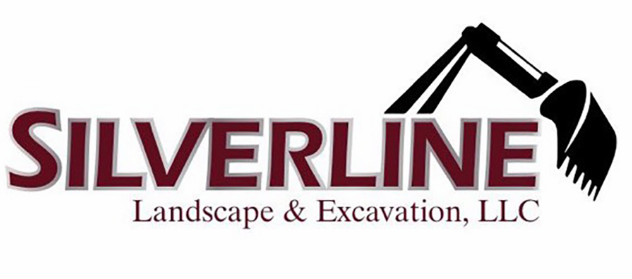
AVOID COSTLY MISTAKES:
Do NOT hire an excavating contractor without first reading our free guide:
The ULTIMATE Excavation & Septic "Success Guide."

Blogs

How to Time Your Demolition Near Loveland, CO for the Best Results
The Hidden Truth About Demolition Timing
You’re finally ready to tear something down. Maybe it’s an old garage on the verge of collapse, a house that’s beyond repair, or a commercial property that no longer serves its purpose. You’ve got the vision for what comes next—but before that happens, demolition has to be done.
And that’s when the stress kicks in.
When should you schedule demolition? Does the time of year really matter? What if bad weather delays the project? And how long will permits take? The questions pile up fast, and if you don’t have the right answers, your timeline (and budget) could spiral out of control.
At Silverline Excavation, LLC, we’ve seen firsthand how bad timing can turn a simple demo job into a logistical nightmare. We’ve also seen how smart planning can save homeowners and business owners thousands of dollars—and weeks of frustration.
This guide will walk you through everything you need to know about timing your demolition project in Loveland and throughout Northern Colorado. Because when it comes to tearing something down, when you do it is just as important as how you do it.
The Best Time of Year for Demolition in Northern Colorado
Most people assume demolition can happen anytime, but in reality, seasons play a huge role. If you schedule your project during the wrong time of year, you could face weather delays, extra costs, or unnecessary headaches.
Winter Demolition: Snow and Frozen Ground Complications
Winter in Loveland can be unpredictable. If you’ve ever tried digging a hole in frozen ground, you know it’s no easy task. Cold temperatures make demolition harder because:
Frozen soil increases equipment wear and tear
Snow and ice create safety hazards for workers
Shorter daylight hours limit productivity
That being said, winter isn’t always a bad time for demolition—especially for interior teardowns. If your structure is coming down to make way for new construction in the spring, scheduling winter demolition can keep you ahead of schedule.
Spring Demolition: The Mud Factor
Spring might sound like an ideal time to demo, but in Northern Colorado, rain and thawing ground can create big issues.
Muddy conditions make it difficult for heavy machinery to operate
Wet debris is heavier and harder to haul away
Soil instability can lead to foundation collapses during excavation
However, spring is great for projects that require quick vegetation regrowth, like clearing a lot before planting grass or landscaping.
Summer Demolition: Peak Season, Peak Costs
Summer is the busiest time for demolition contractors, and for good reason:
Dry ground makes work easier
Longer daylight hours improve productivity
Contractors are in full swing, meaning quicker turnaround times
The downside? Summer is also the most expensive time to schedule demolition. If you wait until peak season, you might struggle to find an available contractor—or worse, you’ll pay premium prices.
Fall Demolition: The Sweet Spot
For many projects, fall is the best time of year for demolition.
The weather is stable (not too hot, not too cold)
Contractors are wrapping up summer projects and may have more availability
You avoid winter delays while still prepping for spring construction
If you’re flexible with your timeline, September through early November is often the ideal window for demolition in Loveland and the surrounding areas.
How Weather Can Ruin (or Help) Your Demolition Plans
Colorado’s weather is unpredictable, and it can make or break your demolition timeline.
Rain and Erosion: The Silent Project Killer
Heavy rain doesn’t just turn your yard into a mud pit—it can destabilize soil, flood work areas, and create serious safety risks. This is especially true in spring when the ground is already soft from thawing.
High Winds: More Than Just an Annoyance
Loveland sees its fair share of high winds, especially in open areas. If you’re demolishing a large structure, strong gusts can:
Send debris flying, creating safety hazards
Slow down crane and excavator work
Increase dust and air pollution concerns
Snow and Ice: Slippery and Unpredictable
A snowstorm can bring a demolition project to a standstill. Frozen debris is harder to remove, icy conditions make work dangerous, and machinery struggles in extreme cold.
Moral of the story? If your project has flexibility, it’s worth picking a season with mild weather to avoid delays.
Permits and Red Tape: Why Waiting Until the Last Minute Is a Mistake
Even if you have the perfect timing weather-wise, there’s one thing you can’t control: permits.
How Long Does It Take to Get a Demolition Permit in Loveland?
Loveland (and most of Larimer County) requires a demolition permit before you can start tearing anything down. The approval process can take anywhere from two weeks to two months, depending on the complexity of your project.
What Happens If You Skip the Permits?
Skipping permits might seem like a way to speed things up, but it almost always backfires.
You could face hefty fines
Your project could be shut down mid-demo
If you ever sell the property, missing permits can create legal issues
At Silverline Excavation, we help homeowners navigate the permit process, ensuring all paperwork is squared away before demolition begins.
Coordinating Demolition with Your Next Steps
Demolition isn’t the finish line—it’s just the beginning. Whether you’re building a new home, adding an extension, or clearing land for commercial use, the key is timing demo work so it doesn’t create unnecessary delays.
Plan demolition well in advance so it aligns with your construction schedule
Work with a contractor who understands site prep—a good excavation company can transition from demo to grading and foundation work smoothly
Factor in cleanup and debris removal—the longer debris sits, the more delays you’ll face in the next phase
Avoiding Peak Demand: How Timing Affects Cost and Contractor Availability
Contractors in Northern Colorado are booked solid in the summer. If you wait until the last minute to schedule demolition, you might find yourself:
Stuck on a waitlist
Forced to pay rush-job pricing
Working with whoever is available instead of who’s best for the job
By planning ahead, you can lock in competitive pricing and avoid scheduling headaches.
Planning Ahead: Your Demolition Checklist for a Smooth Project
✅ Secure necessary permits before booking a contractor
✅ Schedule your project in a season that minimizes weather risks
✅ Align demolition with your next construction steps
✅ Book your contractor well in advance to avoid peak-season pricing
✅ Hire a team that handles site prep, debris removal, and grading
Conclusion: Timing Isn’t Just a Detail—It’s Everything
A demolition project isn’t just about knocking something down—it’s about doing it at the right time, in the right way, to set yourself up for success.
At Silverline Excavation, LLC, we’ve spent years helping homeowners and businesses throughout Northern Colorado time their demolition projects perfectly. If you’re unsure when to start or need help with site preparation, grading, or excavation after demolition, we’re here to make sure your project stays on track.
Because when it comes to demolition, good timing isn’t just helpful—it’s essential.
Hours: M-F 8AM-5PM
Extended hours by appointment only.
Address: Wellington, Larimer County, CO, 80549, US
All rights reserved | Client Support Area

